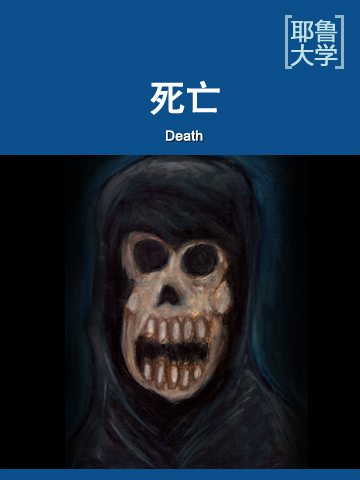-
讲 师:
- 雪莱·卡根
-
译 者:
gaofei_828, phonex53, 金研, Cmmmleave, To0虾米, JJPP, fourleaflet, Edithsu, kerry_xu_cs, Alvinwcq, whujulius, Darrencui, athran88, xixi8510, scarrrr, vincent.yy, 依兰, 小新, tbhere, 傅莉迪, Analeigh, VK, 冻结, DayDay, 奇诺PJL, jaja04200125, 小小, 忘川, 柠檬meg, 素书
-
学 校:
耶鲁大学
-
来 源:
人人影视
-
语 言:
中英
-

-
免费
- 试 读 领 取
死亡
Death
课程的前半部分将会集中在死亡本质问题的研究上。我们死亡时会发生什么?事实上,要解决这个问题,我们首先要考虑:我们是什么?人是一种什么样的实体?尤其是,我们有灵魂吗?在这节课上,雪莱·卡根所说的“灵魂”是哲学中的术语。他的意思是指某些非物质的东西,某些区别于我们身体的东西。我们有非物质的灵魂吗?会有东西能够从身体的死亡中幸存吗?如果没有,那么这对死亡的本质又意味着什么?死亡是一件怎样的事情?幸存对我们来说意味着什么?假如我们从死亡中幸存,这意味着什么?今晚的幸存对于人们来说又意味着什么?
The first half of the class is going to be concerned with questions about the nature of death. What happens when we die? Indeed, to get at that question, the first thing we're going to think about is what are we? What kind of an entity is a person? In particular, do we have souls, and for this class talking about a soul, what the professor is going to mean is sort of a bit of philosophical jargon. He is going to mean something immaterial, something distinct from our bodies. Do we have immaterial souls, something that might survive the death of our body? And if not, what does that imply about the nature of death? What kind of an event is death? What is it for us to survive? What would it mean for us to survive our death? What does it mean for people to survive tonight?
这是雪莱·卡根教授关于本课程的介绍:有一件事我是可以肯定的:我最终一定会死。但是我该怎么样理解这个事实呢?本系列课程将会探讨当我们思考死亡时所想起的一些问题。本门课程也分析了死亡并不意味着终结的可能性。在某种程度上来说,我们是不朽的吗?不朽是可能的吗?这门课程也会探讨死亡是什么,死亡更清晰的概念是什么。如果我们说一个人死了,那这意味着什么?那是什么样的一种事实?最后,这门课程还会评价一下对于死亡不同的态度。死亡是恶魔吗?怎么是一个恶魔?为什么是一个恶魔?自杀在道德上是允许的吗?是理性的吗?对于我将会死这样一个事实的了解如何影响着我现在的生活?
There is one thing I can be sure of: I am going to die. But what am I to make of that fact? This course will examine a number of issues that arise once we begin to reflect on our mortality. The possibility that death may not actually be the end is considered. Are we, in some sense, immortal? Would immortality be desirable? Also a clearer notion of what it is to die is examined. What does it mean to say that a person has died? What kind of fact is that? And, finally, different attitudes to death are evaluated. Is death an evil? How? Why? Is suicide morally permissible? Is it rational? How should the knowledge that I am going to die affect the way I live my life?
- 第1讲 课程介绍
- 第2讲 二元论与物理主义
- 第3讲 灵魂存在与否的论证(一)
- 第4讲 柏拉图对话录《斐多篇》介绍(一),灵魂存在与否的论证(二)
- 第5讲 灵魂存在与否的论证(三):自由意志与濒死体验
- 第6讲 灵魂存在与否的论证(四):柏拉图(二)
- 第7讲 柏拉图(二):灵魂永恒与否的论证
- 第8讲 柏拉图 (三) :灵魂永恒与否的论证(续)
- 第9讲 柏拉图 (四) :灵魂永恒与否的论证(续)
- 第10讲 人格同一性(一):跨越时空的同一性 和 灵魂理论
- 第11讲 人格同一性(二):肉体理论及人格理论
- 第12讲 人格同一性(三):人格理论的异议
- 第13讲 人格同一性(四):本质因素何在?
- 第14讲 本质因素何在(续)、死亡的本质(一)
- 第15讲 死亡的本质(续):请相信你将死去
- 第16讲 独自死亡、死亡之害(一)
- 第17讲 死亡之害(二):剥夺性解释
- 第18讲 死亡之害(三):不朽性(一)
- 第19讲 不朽性(二):生命的价值(一)
- 第20讲 生命的价值(二):死亡的其它坏处(一)
- 第21讲 死亡的其它坏处(二)
- 第22讲 对死亡的恐惧
- 第23讲 如何面对死亡
- 第24讲 自杀(一):自杀的合理性
- 第25讲 自杀(二):犹豫不决的决定
- 第26讲 自杀(三):自杀的道德评判以及全章总结
- Lecture 1 Course Introduction
- Lecture 2 The Nature of Persons: Dualism vs. Physicalism
- Lecture 3 Arguments for the Existence of the Soul, Part I
- Lecture 4 Introduction to Plato's Phaedo; Arguments for the Existence of the Soul, Part II
- Lecture 5 Arguments for the Existence of the Soul, Part III: Free Will and Near-Death Experiences
- Lecture 6 Arguments for the Existence of the Soul, Part IV; Plato, Part I
- Lecture 7 Plato, Part II: Arguments for the Immortality of the Soul
- Lecture 8 Plato, Part III: Arguments for the Immortality of the Soul (cont.)
- Lecture 9 Plato, Part IV: Arguments for the Immortality of the Soul (cont.)
- Lecture 10 Personal Identity, Part I: Identity Across Space and Time and the Soul Theory
- Lecture 11 Personal Identity, Part II: The Body Theory and the Personality Theory
- Lecture 12 Personal Identity, Part III: Objections to the Personality Theory
- Lecture 13 Personal Identity, Part IV: What Matters?
- Lecture 14 - What Matters (cont.); The Nature of Death, Part I
- Lecture 15 The Nature of Death (cont.); Believing You Will Die
- Lecture 16 Dying Alone; The Badness of Death, Part I
- Lecture 17 The Badness of Death, Part II: The Deprivation Account
- Lecture 18 The Badness of Death, Part III; Immortality, Part I
- Lecture 19 Immortality Part II; The Value of Life, Part I
- Lecture 20 The Value of Life, Part II; Other Bad Aspects of Death, Part I
- Lecture 21 Other Bad Aspects of Death, Part II
- Lecture 22 Fear of Death
- Lecture 23 How to Live Given the Certainty of Death
- Lecture 24 Suicide, Part I: The Rationality of Suicide
- Lecture 25 Suicide, Part II: Deciding under Uncertainty
- Lecture 26 Suicide, Part III: The Morality of Suicide and Course Conclusion













 京公网安备 11010802032529号
京公网安备 11010802032529号
笔记加载中...